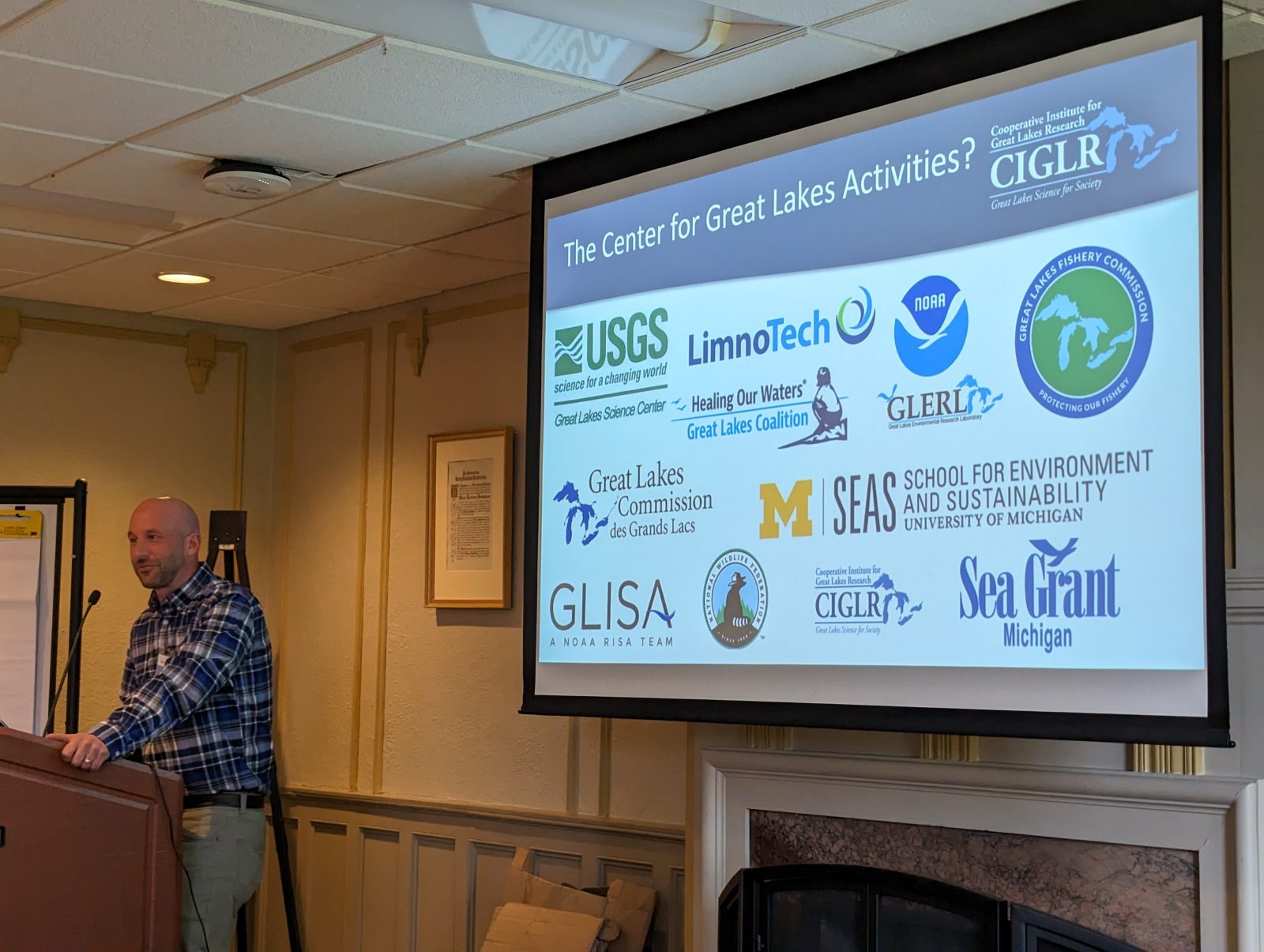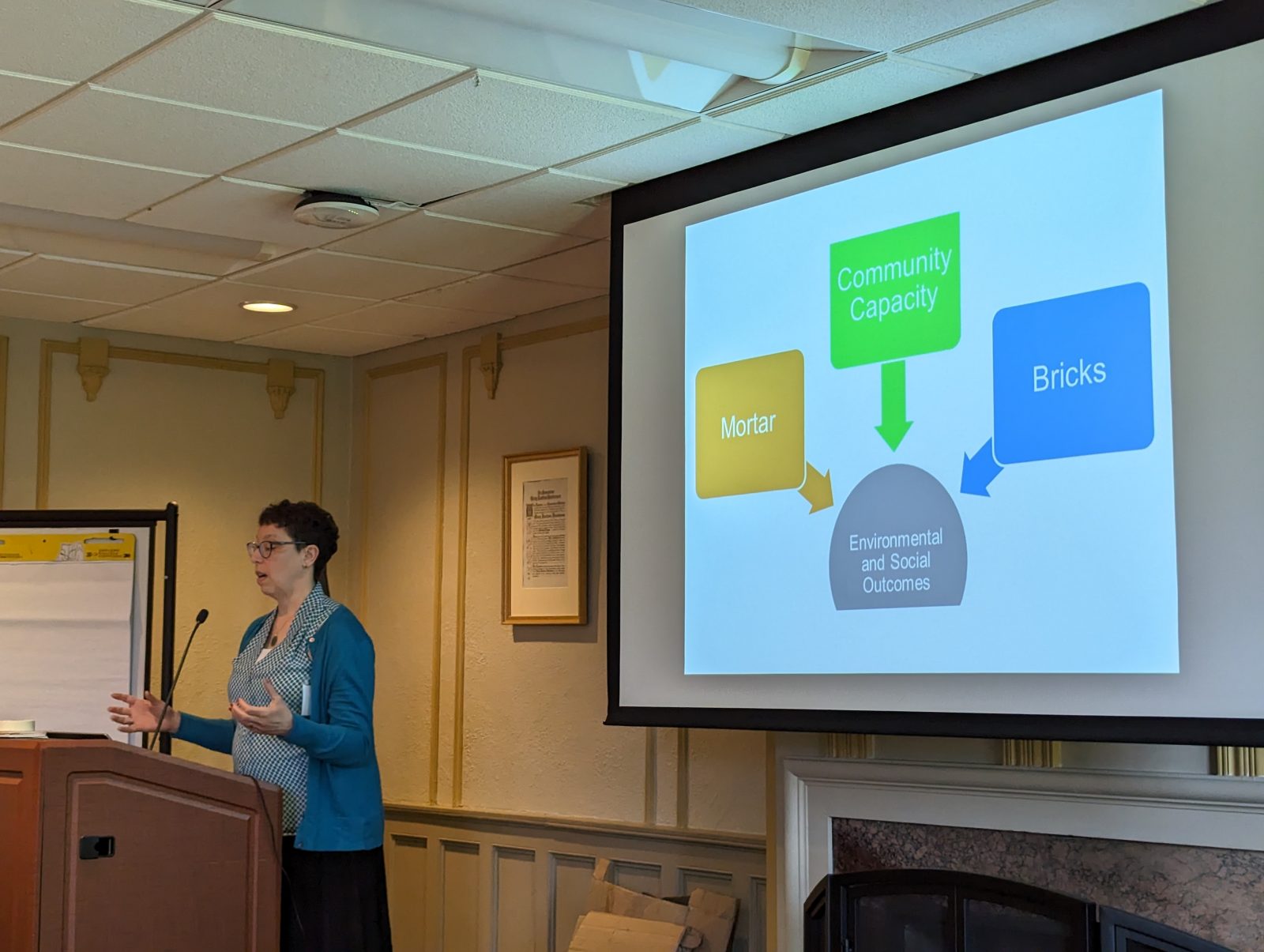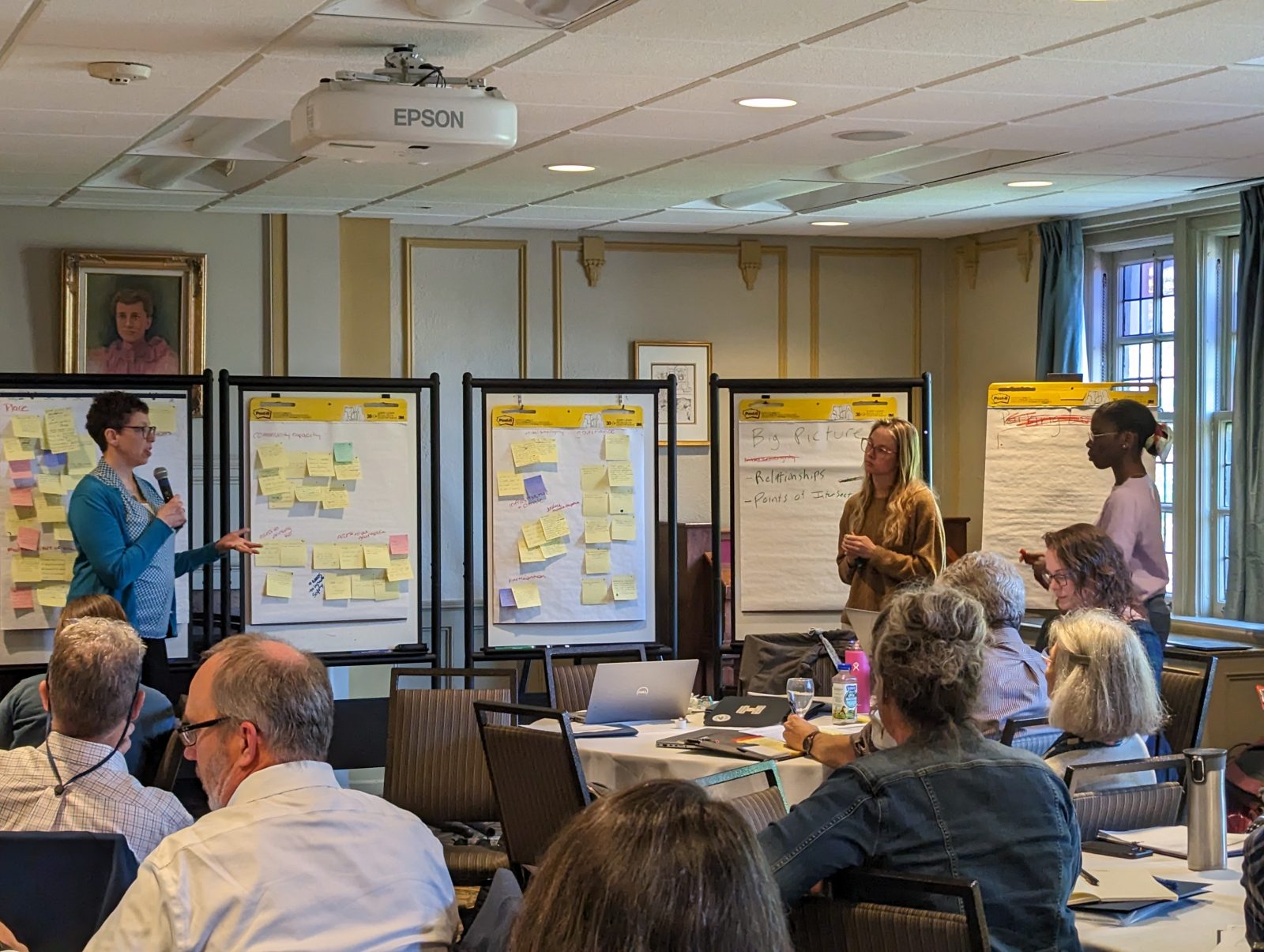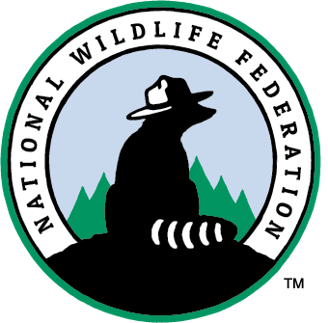Discerning the “Bricks and Mortar” Required to Implement the Societal Components of Comprehensive Great Lakes Restoration
Steering Committee: Leads: Paul Seelbach (University of Michigan); Laura Rubin (Healing Our Waters-Great Lakes Coalition)
CIGLR Research Theme: Protection & Restoration of Resources

Bricks and Mortar Summit, May 2023.
Description: Over the past 14 years, there has been tremendous investment in restoration of Great Lakes nearshore waters and communities suffering from legacy industrial impairments and community disinvestment. The Great Lakes Restoration Initiative (GLRI), initially informed by a 2006 white paper, “Prescription for Great Lakes Ecosystem Protection and Restoration” (Regier et al. 2005), has been and continues to be an extraordinary success. Nearly $4 B has been invested in improving environmental conditions, including: Areas of Concern (AOC) cleanup, nonpoint source pollution mitigation, invasive species prevention and control, habitat restoration, and youth education. In 2022, the Biden administration announced a commitment to completing cleanup actions at 22 of 25 U.S. AOCs by 2030, using a $1 B boost in funding from the Infrastructure Investment and Jobs Act; completion of most major remediation projects will mark a laudable “exciting new beginning” for the region.

Bricks and Mortar Summit, May 2023.
Spurred by the substantial cleanup and ecological restoration, a body of experience and evidence now demonstrates that fully effective restoration and community revitalization also requires the integration of social and organizational dimensions into the biophysical work. Concurrently, the Federal Administration is advancing both climate change and environmental justice policies that intersect, and are synergistic, with ongoing clean-up work. Thus, now is a critical moment to pause and examine the need to broaden Great Lakes restoration and revitalization efforts to achieve full effectiveness of these landmark regional investments.
Building on the biophysical cleanup and restoration progress, achieving a truly vibrant, resilient regional future requires broadening the narrative for Great Lakes Restoration to include: (1) core societal desired outcomes that leverage the biophysical restoration investments; (2) an implementation strategy to achieve these outcomes; and (3) attention to equity throughout.
The growing body of research on community and Indigenous ecosystem values, community participation and agency collaboration, and recognition of multiple values of place demonstrates that people can and must engage with Great Lakes clean-up at many points in the process – from project conception, through implementation, to benefit, and ultimately to long-term stewardship. The group will apply the framing concepts of “bricks and mortar” in ecosystem-based restoration initiatives (Wondolleck and Yaffee 2022), and of translational ecology and community capacity (Williams et al. 2022) to guide our workshop. “Bricks and mortar” are the tangible and intangible components of an effective, large-scale initiative or program. Translational ecology (and similarly, knowledge co-production) is an intentional approach to science-management collaboration (Enquist et al. 2017). Community capacity focuses on resources that communities inherently have and leverage to improve their own well-being (Chaskin 2001). These various elements are all components of community level restoration and revitalization, however they have traditionally received little attention.

Bricks and Mortar Summit, May 2023.
The main goal of this workshop is to develop the science, knowledge, and practice basis for implementing a comprehensive approach to ecosystem management that addresses both the environmental and social dimensions. This group will also make recommendations regarding effective local delivery processes. To produce the resulting vision document, the group will draw on scholarly expertise in fields including: social science, organizational science, humanities, urban planning, urban sustainability, Indigenous knowledge, and Indigenous human-nature relationships. Workshop participants will broaden the conceptual foundation for Great Lakes restoration to include the individuals, communities, and agencies who drive and contribute to local program delivery; and who benefit from and assume long-term stewardship of environmental restoration efforts. Participants will: (1) discern a core list of desired societal outcomes linked to ecosystem restoration; (2) craft an implementation framework and an action agenda; and (3) assure that equity is highlighted throughout the process. The summit will also foster and create new relationships among the diverse group of scientists, scholars, and thought leaders working on community dynamics throughout the Great Lakes region.
The workshop will bring together approximately 30 scientists, scholars, and thought leaders in fields relevant to community engagement in restoration. Background materials will be prepared in advance of the summit, summarizing the current landscape of Great Lakes restoration (e.g., recent assessments by the IJC), current work on community engagement and revitalization, and potential conceptual frameworks for consideration
Workshop Goals:
-
- To craft a public-facing document to guide decision-makers through the next phase of Great Lakes restoration efforts; this document will present a more full vision of the “restoration system”, by adding societal outcomes and strategic actions to those biophysical elements already in place.
- To initiate a cohort of societal scientists who will maintain support for societal facets of restoration and revitalization of the Great Lakes region.
Workshop Products: Hosting the summit will allow the group to craft a vision document identifying the best strategies for effective, comprehensive, ecosystem-based regional restoration by the integration of societal goals with on-going biophysical efforts. The summit will also foster new relationships among diverse scientists, scholars, and leaders working on community dynamics throughout the Great Lakes region. Following the summit,the group will host additional online meetings to jointly review and complete the vision document by early fall 2023.

